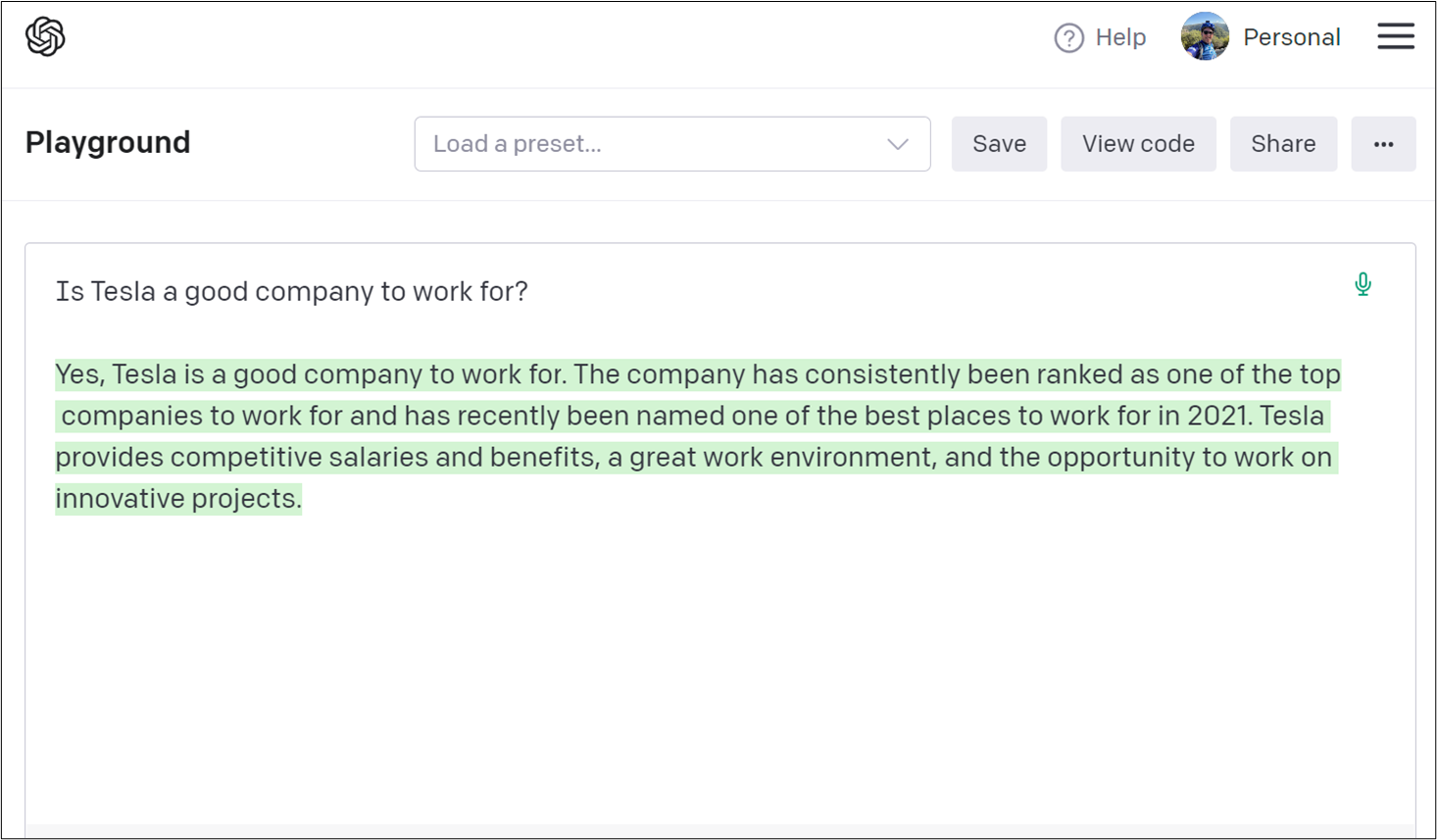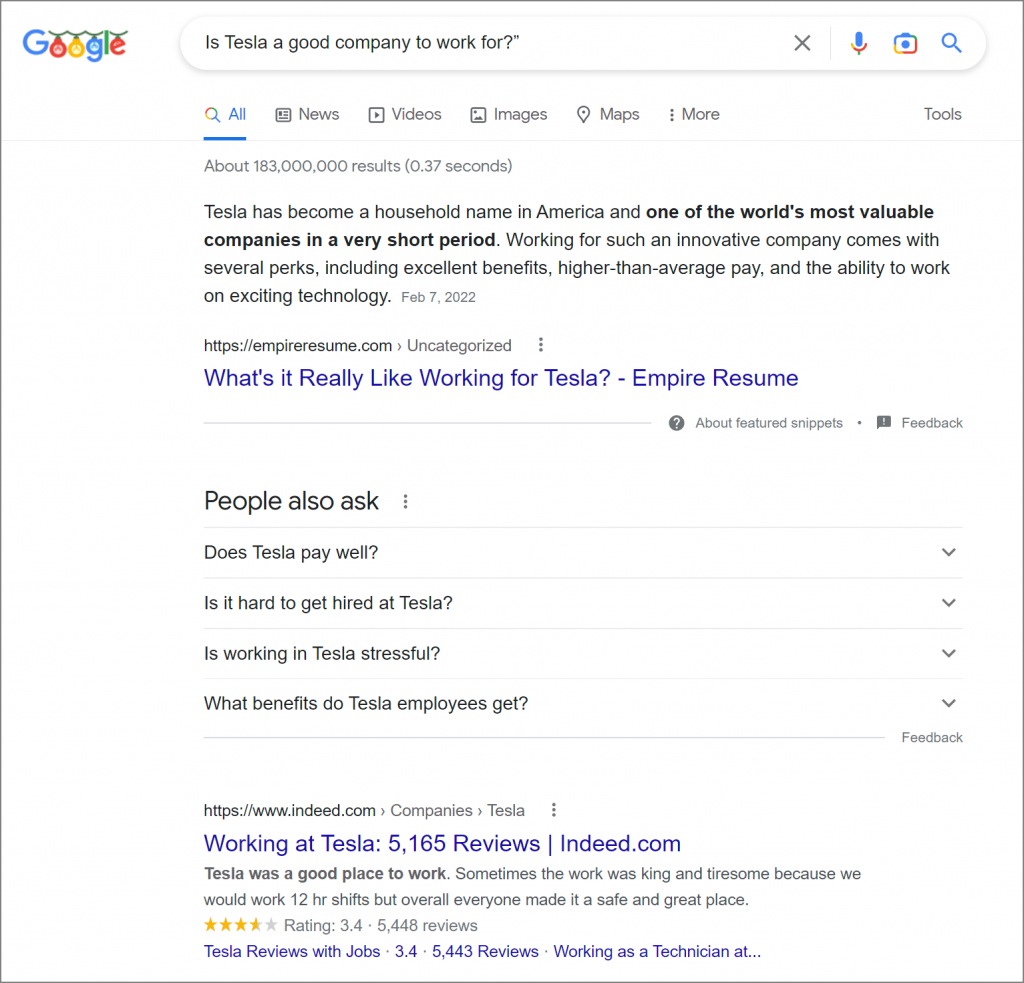AI and the Future of Digital Reputation
Over the past month or so, the internet has been buzzing about the new ChatGPT bot by OpenAI. This moment has been coming for a while, in which AI seems almost ready to take a seat at the human table.
And now the humans are excited. I spent way too many hours asking the chatbot to write sonnets for my kids and sitcom scripts (including a scene from The Good Doctor in which he has to treat a marshmallow who has been badly burned in a fire; At one point the marshmallow actually says to Dr. Murphy, “But I’m a marshmallow!”) All this is making many of us a bit nervous. What does this new technology mean for jobs, education, and relationships? What does it mean for human intelligence?
From a business perspective, one of the questions that interests me the most is: How will a new, pervasive reliance on AI potentially impact the digital reputations of brands and individuals?
There have already been numerous articles written on the subject, many of them with doomsday predictions about the coming irrelevance of everything we once knew. In particular, the New York Times raised a series of challenges that this new technology would pose to Google’s revenue and ethics models, as the company evolves its AI strategy.
As usual, I am more optimistic about our capability to incorporate this new technology wisely.
Google vs OpenAI
Right now, when we want to know about a person or a company we Google it, and we see a list of results that the algorithm thinks (based on various factors) will satisfy the searcher. Deciding which of these results to read (or scrolling on) is up to the searcher, as is constructing a conclusion on their basis.
The search page gives us pieces of information to choose from, but we do the work of picking which ones to read, and analyzing what we read. Searching the way we do now gives us an opportunity to consider: Is that what I really wanted to know? Is there important context available that I might be missing? Do those sources look reliable? Is there bias I am missing?
ChatGPT makes the leap from providing information to performing analysis and stating conclusions. Like Google, it makes some algorithmic decisions about which information to use in its analysis (though less transparently, since it does not typically share sources), and then does its own thinking and analysis in order to provide a cogent answer – one that requires very little work from the searcher. And one that may seem satisfying, in easily accessible language.
Take for example the question: “Is Tesla a good company to work for?”
When I asked OpenAI, I got this back:
Yes, Tesla is a good company to work for. The company has consistently been ranked as one of the top companies to work for and has recently been named one of the best places to work for in 2021. Tesla provides competitive salaries and benefits, a great work environment, and the opportunity to work on innovative projects.
When I typed the same thing into Google, I got much more complicated and thought-provoking results.
- Empire Resume told me it’s a valuable company and has many perks.
- Google then suggested some questions and answers:
- How is pay? Good, according to Zippia
- How hard is it to get a job? Really hard, according to Zippia
- How stressful will it be? Very, according to Business Insider
- How are the benefits? Great, according to Tesla.com
After that, you get to the Indeed.com and Glassdoor.com review sites, where you can see star ratings and read what could be actual reviews from employees. There’s a YouTube video with more information.
You get the idea.
Getting to know the searcher
So what’s the right answer to the question about Tesla? As a human (and one who has spent 18 years focused on search) I think the answer is “it depends.” If the AI understands the searcher’s specific needs, in some cases it will be able to weigh various factors and make better decisions. Google knows a lot about you – where you are, the types of sites you frequent, your interests – and yet its personalization feels very incomplete. AI will hopefully be able to synthesize the facts about you and better predict what you care about.
Of course, much of the burden will fall on the searchers themselves. Just as it took many years to get smart about how to use Google, there will definitely be a learning curve as we learn how to ask AI to help us with complex questions. When search was new, many people clicked on the top results almost blindly, but now most of us have better ways to get to the information we trust. Searchers are likely to use AI in the same way, and they will learn to ask for sources. I can imagine something like Google results alongside the AI results. In fact – a new plug in is piloting just this functionality, albeit in a very cursory way.
As I mentioned above, knowing about the searcher would be invaluable, and would make AI that much more useful as a provider of both information and analysis. If I ask AI for dinner suggestions, it would be good if it knew what ingredients are available in my area (or even in my house) and that my family keeps kosher. While it may sound scary, if it knows that we ate pasta yesterday, and that we are trying to watch our carbs, it will be more likely to suggest roasted salmon with broccoli – not a bad decision.
Where does this leave reputation management?
I believe that in the not-so-distant future, AI will be able to helpfully synthesize a lot of information about brands and executives. This could actually be a great development for brands – assuming that robust, accurate information is available, and that AI is seeing and understanding it.
As its use in search develops, AI will likely be better at ignoring transient negative news cycles, despite their high clickability on Google, especially when in the overall context they are not that relevant to the searcher. My sense is that we are moving to a place where companies will need to make even more efforts to communicate holistically, as they will need to ensure that humans, computers, and now AI, all get a holistic picture of who they are. The rise of AI will make it even more important to carefully curate your digital presence.
This development will be bad news for those who are not working to deliberately plan their online presence, or those who have relied on tricks and manipulations to control their online presence. These companies will now find themselves at the mercy of automated processes which play by different rules.
Google and other search engines are already using AI and smart algorithms in order to choose sources to display, and it is likely that the search of the future will have elements of Google search (providing key sources and context) as well as elements of AI – providing analysis and cogent answers in language we understand. In the meantime, we humans will need to make sure we are firmly in the driver’s seat when it comes to how we want ourselves and our companies to be perceived.


